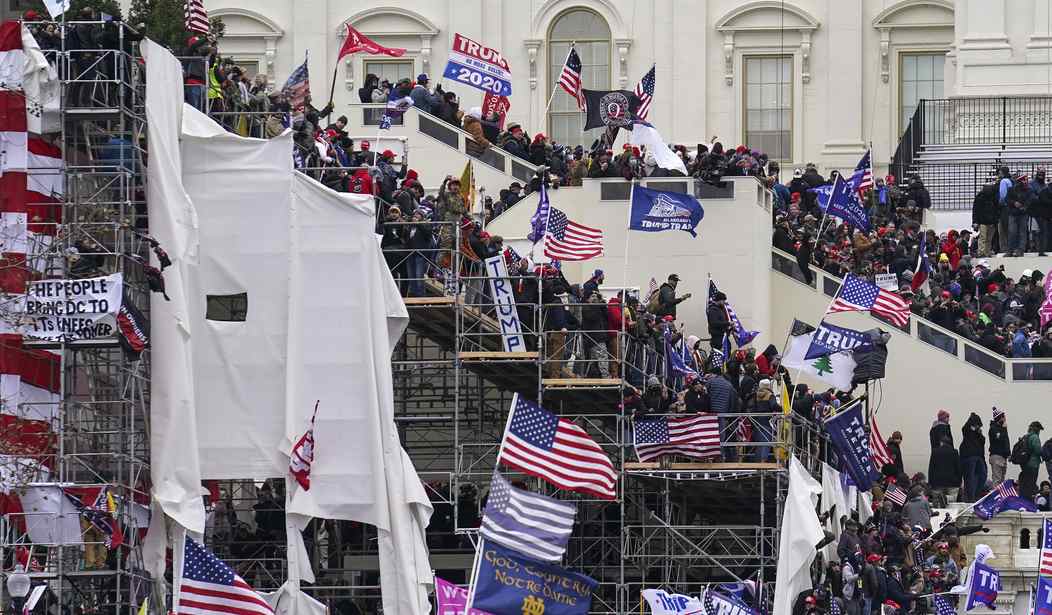On Wednesday, the U.S. Supreme Court issued a brief ruling indicating that records from the Trump White House could be handed over to the January 6 select committee. Last month, former President Donald Trump had requested that the Court block the National Archives from submitting such records, citing executive privilege.
"Because the Court of Appeals concluded that President Trump’s claims would have failed even if he were the incumbent, his status as a former President necessarily made no difference to the court’s decision," the brief, unsigned order from the Court read in part. "Any discussion of the Court of Appeals concerning President Trump’s status as a former President must therefore be regarded as nonbinding dicta," it also mentioned.
Chief Justice John Roberts had received the request and referred it to the Court. Justice Clarence Thomas would have granted the application, though there is no statement from him included.
What is included is a lengthier statement from Justice Brett Kavanaugh, whom Trump nominated to the Court in 2018. The statement explain that as "nonbinding dicta," the Court of Appeals decision "should not be considered binding precedent going forward, a point stressed throughout.
"A former President must be able to successfully invoke the Presidential communications privilege for communications that occurred during his Presidency, even if the current President does not support the privilege claim. Concluding otherwise would eviscerate the executive privilege for Presidential communications," Kavanaugh's statement read at one point.
"Without sufficient assurances of continuing confidentiality, Presidents and their advisers would be chilled from engaging in the full and frank deliberations upon which effective discharge of the President’s duties depends," the statement read with original emphasis.
Recommended
"To be clear, to say that a former President can invoke the privilege for Presidential communications that occurred during his Presidency does not mean that the privilege is absolute or cannot be overcome," Kavanaugh went on to write, though. "Moreover, it could be argued that the strength of a privilege claim should diminish to some extent as the years pass after a former President’s term in office."
A determining factor in the case had been that President Joe Biden had waived such executive privilege with regards to the records.
Earlier reports had indicated that the select committee was already set to receive records, as Katelyn Polantz reported for CNN.
From Polantz's reporting:
The National Archives plans to release four pages of Trump-era White House documents to the House on Wednesday, in what appears to be the first time the committee that's investigating the January 6 riot would get records that former President Donald Trump wants to keep secret.
The documents are set to go to the House committee at 6 p.m. on Wednesday, according to a court filing from the Archives, which holds all of the Trump White House records.
It's not clear what those four pages include, and should they be turned over, it would be up to the House select committee investigating the January 6, 2021, attack on the US Capitol to make them public.
As of Wednesday night, it does not appear that Trump spokesperson Liz Harrington has issued a statement about the Court's order.
It's been a particularly busy few days for the select committee, as even more witnesses have been subpoenaed.
The Select Committee has issued subpoenas to Nicholas J. Fuentes and Patrick Casey.
— January 6th Committee (@January6thCmte) January 19, 2022
The committee is demanding records and testimony from the two witnesses who promoted unsupported claims about the 2020 election and were present on the Capitol grounds on January 6th. pic.twitter.com/0mLN2C1a4k
We expect these individuals to join the nearly 400 witnesses who have spoken with the Select Committee as the committee works to get answers for the American people about the violent attack on our democracy.https://t.co/VKDrf4aRjQ
— January 6th Committee (@January6thCmte) January 18, 2022
According to a statement from Rep. Bennie Thompson (D-MS), who chairs the committee, nearly 400 witnesses have spoken with the select committee.

























Join the conversation as a VIP Member